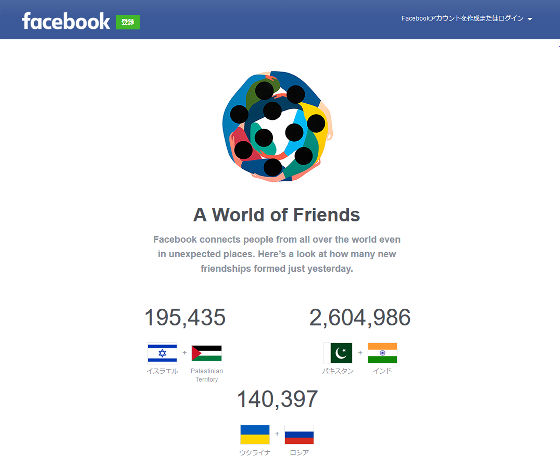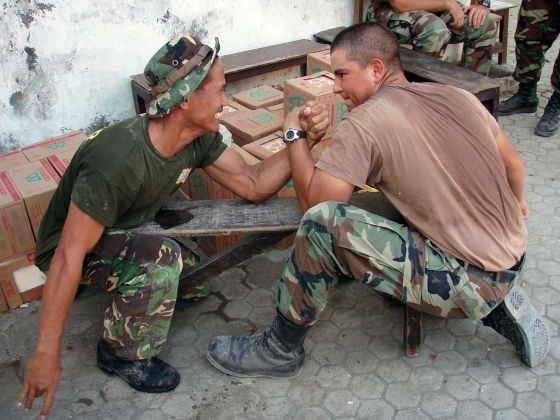Interacting online even among hostile groups will strengthen social cohesion by eliminating prejudice

People far away from the Internet can now connect to each other, but research results have shown that online dialogue can solve the problem between groups that intensely confront each other.
PsycNET Record Display - PsycNET
http://psycnet.apa.org/record/2015-22397-001
How research is helping to reduce prejudice between people online
https://theconversation.com/how-research-is-helping-to-reduce-prejudice-between-people-online-106175
In the research of Pew Research Center, it is known that 69% of adults living in the United States use at least one social media site, and it has been confirmed that it has increased substantially from 21% in 2008 . In addition, in Australia has 80 percent of the population to get some kind of social media account, also that many people have multiple times in one day turned out we are. In addition, there are reports that 57% of teenagers have made new friends online, and it is quite common to meet unfamiliar people on the Internet.
It is not hard to imagine that the Internet deepens interaction with people with the same ideas and common hobbies as myself, but it is also clear that interaction with people with different ideas and thought is vigorous at all . Facebook has been trying to connect deeply conflicting countries such as Israel and Palestine, Russia and Ukraine, India and Pakistan online by a project called " Friends of World ", and Facebook says Israel - More than 200,000 "friendship" was born between Palestinians.

"Contacting hypothesis" that contact between opposing groups softens the attitude towards the opponent group and improves emotion is issued by psychologist Gordon Alport, so that opportunities to contact even those who are weak are increased , "A simple contact effect " that gradually gives good emotions is known. To the contradictory group as well, deepening mutual exchange is effective for improving relations not only in direct real world exchanges, but also in "research activities on the Internet" It is.
A research team of Dr. Abrajah Hisham of Australia's La Drobe University raised the theme "Can online exchange improve relationships among various groups?", And two members belonging to different groups are between individuals We used online program "E-contact" which we can chat with, and investigated exchanges between conflicting groups. In E-contact, the host role exchanges the facts of interest and helps to get acquainted. After that, the two who got acquainted online were required to perform common tasks and achieve the goals. In addition, the host role seems to be involved as a support role such as advising two people to work in cooperation.

In the E-contact experiment that has been continued for nearly 10 years, as a result of attempts of exchanges between members belonging to conflicting groups such as Northern Ireland Catholic and Protestant, homosexual and heterosexual, Muslim and Catholic In the case of the case, it turned out that online exchanges lost prejudice against the opponent group and strengthened social ties. The simple contact effect is displayed even online.

We found that hostile relationships with opponents could be improved by meeting with members of conflicting groups that have mutually incompatible claims via the Internet, but online interactions with strangers are representative of "dating sites" As it tends to have a negative impression as it is, in the future it is desirable to develop tools that can interact online in a safe manner among various groups. It is also pointed out that new technologies such as virtual reality (VR) and each surreal (AR) can be a solution.
Related Posts:
in Note, Web Service, Posted by darkhorse_log







